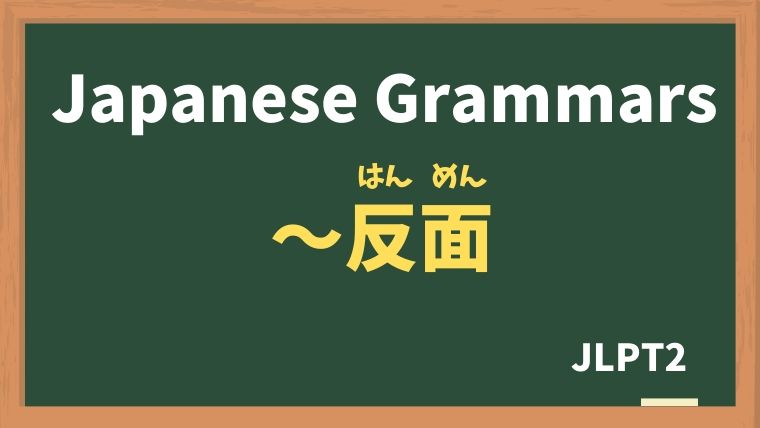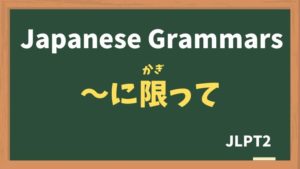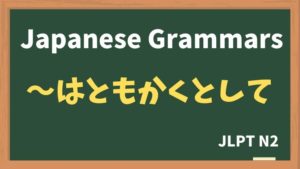
Explanation:〜反面
fa-check-circleMeaning
"一方で / 〜とは反対に"
"on the other hand"
Used to indicate contrasting aspects of a situation or subject. It highlights that while one aspect of something is true, an opposite or different aspect is also true.
fa-check-circleForm
V(plain form)+ 反面
イA(plain form)+ 反面
ナAな / である / だった + 反面
Nである / だった + 反面
fa-check-circlePoints
- Contrasting Aspects: "〜反面" is used to express contrasting aspects of a situation, person, or thing. It shows that while one aspect is true, the opposite or another aspect is also true.
- Balanced View: It provides a balanced view by presenting both the positive and negative sides or two different characteristics of the same subject.
- Formal Usage: This structure is commonly used in both written and spoken formal language.
fa-check-circleJLPT Level
N2
Sample sentenes
田中先生はいつも優しい反面、怒るととても怖い。
Teacher Tanaka is always kind, but on the other hand, he is very scary when he gets angry.
一人暮らしは自由な反面、さびしい時もある。
Living alone is liberating, but there are also times when it can be lonely.
インターネットは便利な反面、使い方を間違えれば危険なこともある。
The internet is convenient, but on the other hand, it can be dangerous if used incorrectly.
クレジットカードは便利な反面、使いすぎてしまうことがある。
Credit cards are convenient, but on the other hand, you might overspend.
日本での就職が決まって、嬉しい反面、不安もある。
I am happy to have gotten a job in Japan, but on the other hand, I also feel anxious.
この仕事はやりがいがある反面、ストレスも多い。
This job is rewarding, but on the other hand, it is also stressful.
田舎の生活は静かな反面、不便なことも多い。
Life in the countryside is peaceful, but on the other hand, it is also inconvenient.
このアパートは家賃が安い反面、駅から遠い。
This apartment has cheap rent, but on the other hand, it is far from the station.
Vocabulary
| Japanese |
English | |
| 一人暮らし | ひとりぐらし | living alone |
| 田舎 | いなか | countryside |
| 不便 | ふべん | inconvenient |
| 家賃 | やちん | rent |






